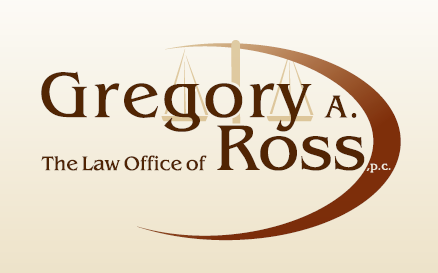1. YOU CAN’T FILE BANKRUPTCY UNDER THE NEW LAW
No, THE 2005 REFORM ACT just made it more difficult and added SPEED BUMPS to overcome. This is why you need to consult a consumer bankruptcy attorney before you do anything if you are in financial distress.
2. YOU MUST BE BEHIND IN YOUR BILLS OR BROKE TO FILE BANKRUPTCY
No, do not wait until it is an emergency with bank restraints and income executions. Figure out where you will be financially 6 months from now. Will it be better or worse?
3. YOU CAN’T WORK AND FILE BANKRUPTCY
No, the starting point is the MEDIAN INCOME set in the Means Test under the new law which is currently $38,294 for single person with no dependents in Texas.
– $55,178 for family of 2.
– $65,477 for family of 4.
– Each state is different.
This is just a starting point. Certain expenses will help qualify you, so one’s gross income can be substantially higher in some cases. See your local Salinas and Monterey bankruptcy attorney to see if you qualify.
4. YOU WILL LOSE YOUR HOME IF YOU FILE BANKRUPTCY
NO: Each state has different protection for homes. If your home is underwater (meaning no equity in it), it is not considered an asset in the bankruptcy and you may elect to keep it or surrender it. Texas has an unlimited dollar value homestead exemptions to protect equity in your principal residence.
5. IT WILL DESTROY MY CREDIT IF I FILE FOR BANKRUPTCY MY CREDIT SCORE WILL GO DOWN
Let’s face it: most clients already have bad credit. Question is: What are you going to do about your debt? Most credit scores will go up after filing bankruptcy, particularly in a Chapter 13.
6. YOU WILL NEVER GET ANOTHER JOB OR BE ABLE TO RENT AN APARTMENT
You have a better chance of landing that job if you take action to fix your finances. Employers do not want harassment at work or income executions. Landlords want tenants who can use their salary to pay rent, not the Marshal or credit cards.
7. IF YOU FILE BANKRUPTCY, YOU MIGHT AS WELL MAX OUT CREDIT CARDS
WRONG! Stop using the cards and stop paying them and see a consumer bankruptcy professional. Maxing out those cards will create more problems in your bankruptcy filing and may be bad faith. Bankruptcy is meant for the UNFORTUNATE but HONEST debtor.
8. YOU SHOULD DO ANYTHING TO AVOID BANKRUPTCY INCLUDING CASHING IN 401K OR RETIREMENT FUNDS
WRONG! Your retirement funds are protected! And, you will be taxed and penalized on retirement withdrawals by the IRS! Don’t listen to those Cable Television Talkingheads who tell you to cash in your retirement!
9. IMMIGRATION STATUS WILL BE AFFECTED AND YOU WILL NEVER BECOME A CITIZEN
NOT TRUE: Filing bankruptcy is NOT a crime and will NOT affect your Green Card or CITIZENSHIP!!
10. MY BANKRUPTCY WILL BE IN THE NEWSPAPERS AND EVERYONE WILL KNOW ABOUT IT.
Bankruptcy filings are published in some newspapers since it is a matter of public record. Your real friends will understand, and who cares about anyone else. They aren’t in your shoes and don’t know what led to having to file Bankruptcy.
11. THOSE DEBT MANAGEMENT PLANS (DMP) ADVERTISED ON TV AND RADIO WORK!
NO! If you pay the DMP and do not pay your creditors, you will be sued by the creditor. Most DMPs are being investigated by the Attorney General.
12. YOU CAN KEEP 1 CREDIT CARD (JUST DON’T TELL YOUR BANKRUPTCY ATTORNEY)
No. Bankruptcy allows a Fresh Start. You must list all of your debts. It is likely that the card will be closed anyway.
13. YOU CAN’T AFFORD TO FILE BANKRUPTCY
Most bankruptcy attorneys have payment plans. In Chapter 13, most of the fees can be paid through the plan payments. You are generally instructed to stop all credit card payments freeing up money for fees.
14. YOU ARE A FAILURE IF YOU FILE BANKRUPTCY
Studies show that bankruptcies are generally caused BY HEALTH PROBLEMS, EMPLOYMENT PROBLEMS, and MATRIMONIAL PROBLEMS.
15. YOU HAVE TO PAY EVERYTHING BACK ANYWAY, SO WHY FILE BANKRUPTCY?
In A Chapter 7 bankruptcy debts are wiped out with the exception of certain taxes, child support/alimony and student loans. In Chapter 13 you pay back debts that must be paid, such as certain taxes, mortgage arrears if you are keeping the house, or payments for vehicles on which you still owe money.
Contact us with any of your Bankruptcy questions. The initial consultation is free.

